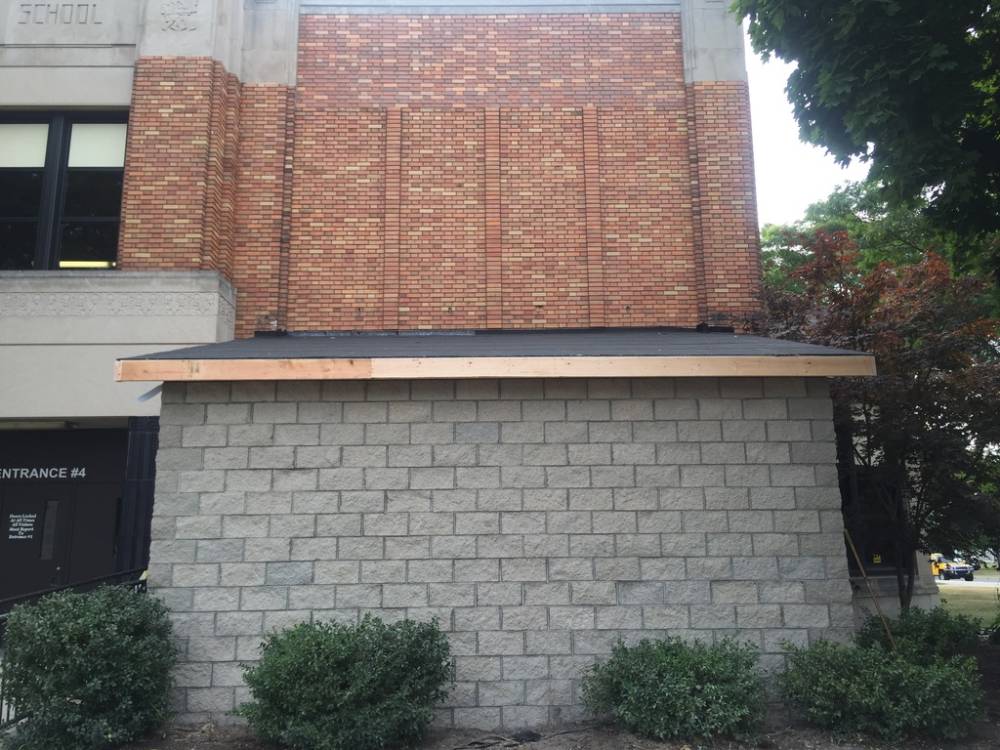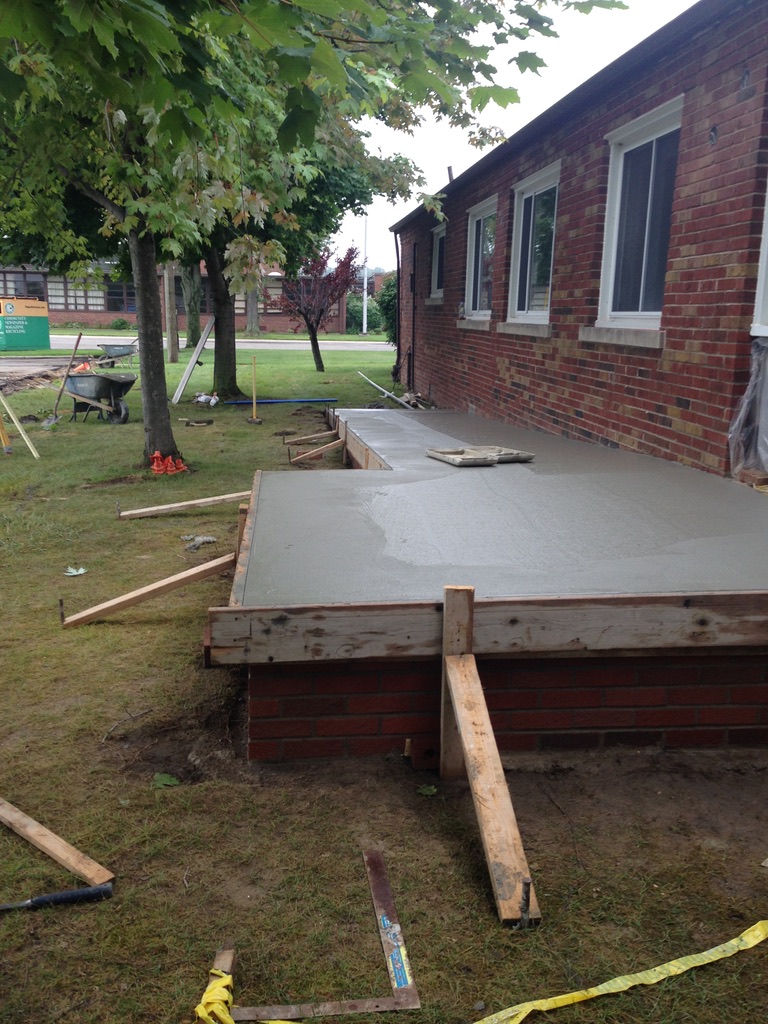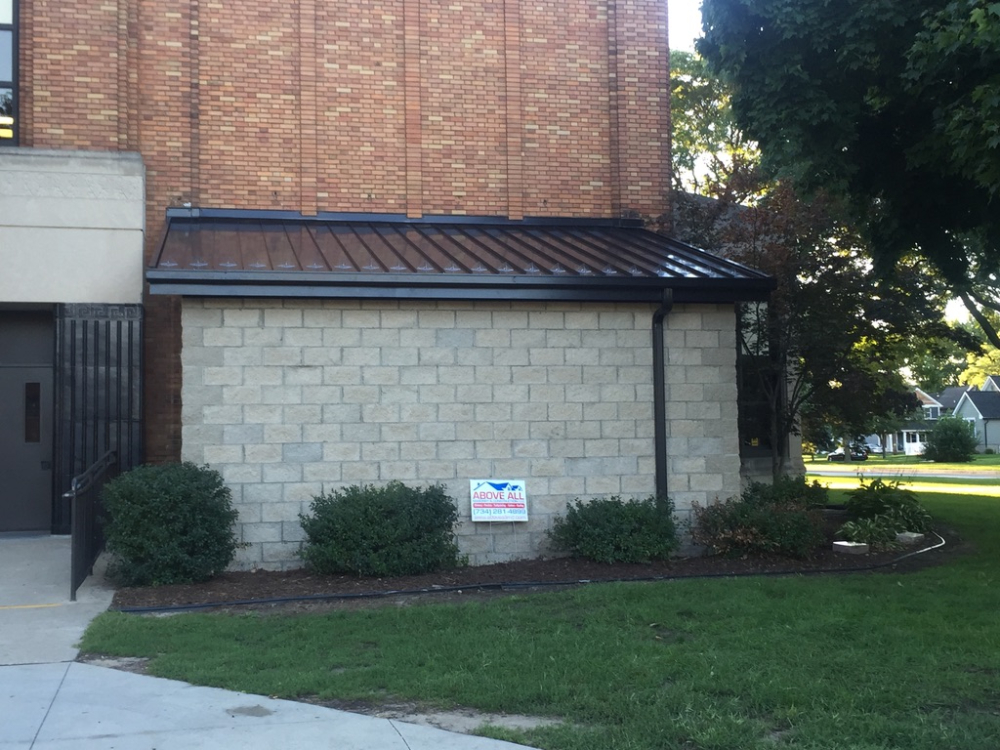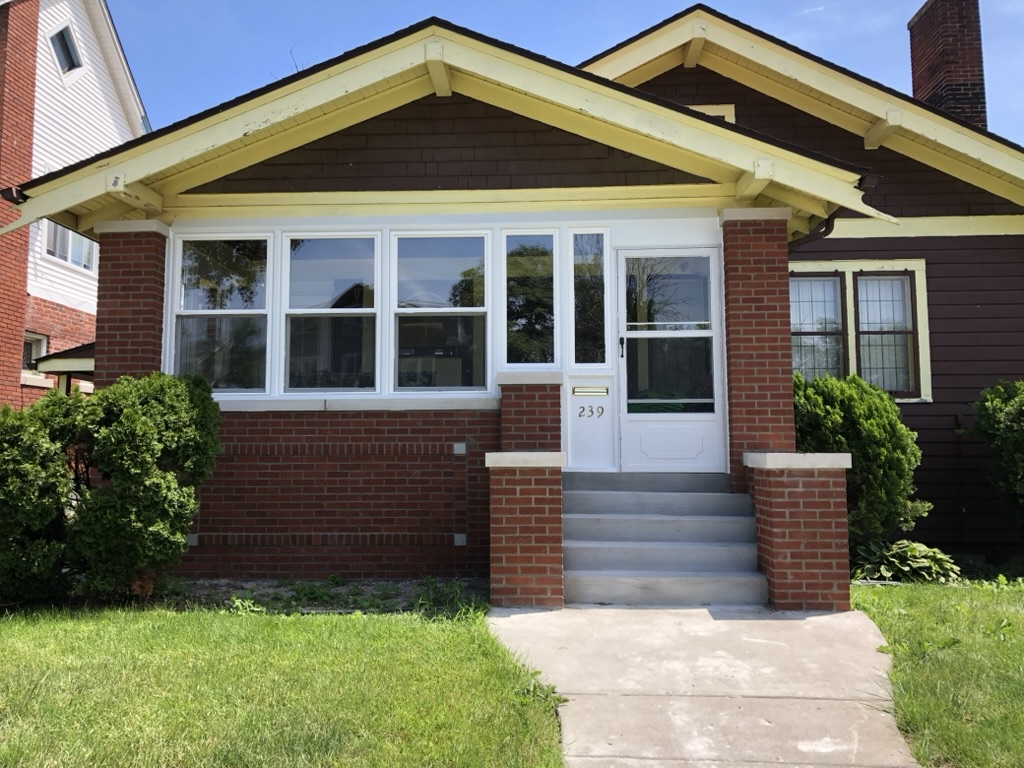
Masonry Repair and Restoration in the Downriver area of Michigan.
Above All Masonry and Construction specializes in residential, commercial and historical masonry repair and restoration including porches, steps, tuck pointing, brick replacement, stonework, door & window sills, signs, brick & block, walls, and waterproofing.

We Offer the Following Masonry Services
Brick / Block
Chimney Repair & Built
Porches
Steps
Tuck Pointing
Brick Replacement
Stonework
Door/Window Sills
Signs
Dumpster Enclosures
Walls
Waterproofing
Residential / Commercial / Insurance Work

Tuckpointing
Tuckpointing is the process of filling the open gaps between the bricks with new mortar. A circular diamond blade is used to grind the existing mortar-joints deep to allow the new mortar to be filled deep between the bricks or stone. This makes a strong mortar joint and helps the new mortar to adhere.
It is virtually impossible to make the new mortar color match the existing weathered mortar-joints perfectly. By mixing the right colored dyes into the mortar, the mortar-color is matched one shade darker than the existing mortar-color because if the mortar cures lighter than the existing surrounding mortar, it stands out more noticeably.
If more than 20% of the mortar-joints are open in a given area, then all the mortar-joints are ground and tuckpointed in that area to prevent the panel from looking patchy.
Our goal at Above All Masonry & Construction is to make the project look original, like it had never needed maintenance. Nobody notices a good tuckpointing job, it is only noticeable if it had been matched poorly.
A wall or chimney that has spalling brick or stone can not be fixed by tuckpointing alone without replacing the damaged brick or stone.

Color Matching
Matching brick and mortar color is an art in itself. The color is matched first and then the texture.
A matching brick color can be found for any given project.
When a matching brick is not available, a matching brick color can be obtained by staining or by re-using the original brick when they are not damaged.
Frequently, all the reusable bricks are cleaned (of the original mortar) and re-laid, and new matching bricks are integrated randomly.
For brick that has a blend of several colors, the color matching is easier. Each of the colors can be matched from different available makes.
The mortar color is obtained by mixing colored dyes into the mortar.
Knowing that a 100% perfect match is seldom possible, the mortar is matched one shade darker to the original color, for less contrast than if it cures lighter.